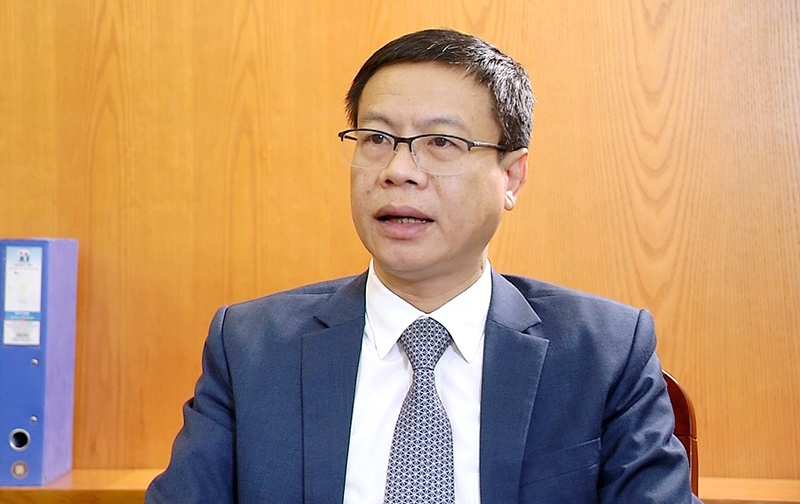Special policies to attract investment in sci-tech
 |
| Deputy Minister Le Xuan Dinh |
Prime Minister Pham Minh Chinh and Deputy Prime Minister Vu Duc Dam have held working sessions with the Ministry of Science and Technology (MoST) and asked it to propose special mechanisms for sci-tech investment and development. What policies will the ministry propose to turn the field into a key driver of economic growth?
The resolution of the 13th National Party Congress decreed that sci-tech development, innovation, and digital transformation would form the cornerstone of the Vietnamese economy and ordered the appropriate adjustments in our policies in all areas, from labour to production.
Countries and territories which have successfully risen out of the ranks of low-income countries and made it among the ranks of high-income countries did so on the back of technology and innovation. South Korea, Singapore, and Poland are all examples of this.
Based on their experience, we hope that we can enable sci-tech and innovations to become a key driver of economic growth.
It is necessary to complete favourable conditions for businesses, sci-tech organisations, technology institutes, and universities. It is necessary to find new policies and mechanisms that better fit new models of economic development and business.
Next, we must increase investment in sci-tech and innovation while mobilising capital from the private sphere, mainly from businesses. Countries that succeeded in escaping the middle-income trap spend at least 1 per cent of their GDP on sci-tech and innovation.
This development must be aimed at catching up with international practices, increasing the transaction value of products, and supporting the development of intermediate units. The national infrastructure for the sci-tech market must be developed comprehensively, including a transaction floor for technology that is integrated into a shared database and market connection tools – all of which are to establish advanced technology import channels to meet production and innovation demands among domestic businesses, especially in the key export industries.
Furthermore, the focus must be kept on technological innovations to equip the whole economy with suitable technology, and especially to increase the productivity and quality of businesses. Thus, we can gradually improve technology capacity to increase the rate of high-tech applications, giving special priority to the development of digital economy, green growth, and the circular economy.
In addition, we must develop the workforce, especially skilled employees who meet market demands and are ready for digital transformation.
Lastly, we should increase the innovation capacity of businesses, with a focus on technological innovations and business administration, improving their capacity to absorb new technologies from foreign partners and those made at home.
 |
| Special policies to attract investment in sci-tech |
Despite strong interest in sci-tech, there remain many barriers for business. Has the MoST faced any challenges during the implementation of sci-tech supporting policies?
In the 2016-2020 period, thanks to the government’s drastic policies and actions, the country enjoyed high and stable economic growth, and the increased application of sci-tech and innovation contributed to this result.
Investments in sci-tech have seen a great deal of improvement in recent years, especially from businesses. Ten years ago, funds mostly came from the state budget, accounting for 70-80 per cent of total capital. Now, the state and businesses have almost reached parity in sci-tech investment (52-48 per cent).
However, despite contributions to the nation’s development, technological innovation, their absorption, and innovation among domestic businesses remain weak.
Generally, investment from society and businesses in sci-tech remains under global trends. Vietnam’s spending on research and development is now at 0.53 per cent of GDP, compared to the world average of 2.23 per cent. It is lower than in regional countries, such as Thailand (0.78 per cent), Singapore (2.2 per cent), Malaysia (1.3 per cent), or China (2.1 per cent).
Small-and medium-sized enterprises, especially startups, find it hard to access loans and many enterprises have yet to establish long-term visions on technological innovations for sustainable development. Thus, innovation at these companies remains sparse, unsystematic, and has yet to tap into the strengths of localities and regions.
It also has to be admitted that there are still some shortcomings in state management agencies’ management of risks in technology and innovation. Some incentives are unenforceable due to a lack of consistency with other rules.
Public procurement policies have also yet to encourage the use of technology products and services made by domestic firms. There is also a lack of support for businesses to market their products and services to potential markets.
Moreover, collaboration among enterprises, between enterprises and schools and state management agencies remains weak. Meanwhile, there are no encouraging policies for the use of employees from institutes and schools in technology innovations and development at businesses.
What are the MoST’s solutions and policies to put businesses in the centre of the national innovation network, especially during the pandemic?
We are focusing on solutions that impact two groups in the national innovation network. The ministry will review and amend regulations to simplify administrative procedures and create favourable conditions for businesses to join research projects and apply sci-tech results in manufacturing and other activities.
Also, we are carrying out policies to support startup development and enable them to renovate their growth model. Meanwhile, we are establishing national innovation and startup centres initially in Hanoi, Danang, and Ho Chi Minh City, and strengthening the connection with innovation networks at home and abroad.
While these policies are aimed at encouraging the private sector and powerful businesses to fund startups, we are building a public-private partnership mechanism for venture investments in sci-tech and innovation.
The MoST is also carrying out solutions to increase labour productivity and product quality among businesses via supporting activities in renovation, transfer, and application of applied technology, as well as patent rights and intellectual property, hoping to encourage foreign businesses and investors to develop research and development centres in Vietnam.
It is also necessary to develop universities into research centres. From there, we can decide the necessary investment, financial mechanisms, and supporting policies that will be part of the regulations of public units, especially state-run sci-tech organisations.
What the stars mean:
★ Poor ★ ★ Promising ★★★ Good ★★★★ Very good ★★★★★ Exceptional
Related Contents
Latest News
More News
- Kurz Vietnam expands Gia Lai factory (February 27, 2026 | 16:37)
- SK Innovation-led consortium wins $2.3 billion LNG project in Nghe An (February 25, 2026 | 07:56)
- THACO opens $70 million manufacturing complex in Danang (February 25, 2026 | 07:54)
- Phu Quoc International Airport expansion approved to meet rising demand (February 24, 2026 | 10:00)
- Bac Giang International Logistics Centre faces land clearance barrier (February 24, 2026 | 08:00)
- Bright prospects abound in European investment (February 19, 2026 | 20:27)
- Internal strengths attest to commitment to progress (February 19, 2026 | 20:13)
- Vietnam, New Zealand seek level-up in ties (February 19, 2026 | 18:06)
- Untapped potential in relations with Indonesia (February 19, 2026 | 17:56)
- German strengths match Vietnamese aspirations (February 19, 2026 | 17:40)

 Tag:
Tag:




















 Mobile Version
Mobile Version